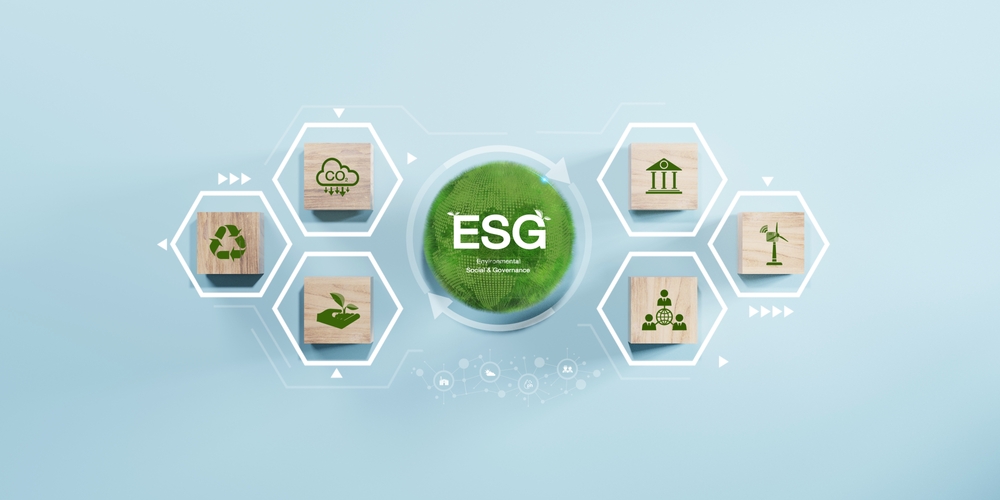Stakeholders increasingly expect organizations to consider the impact of social matters on their business models and operations. While the environmental and governance aspects of ESG have gained significant attention, the social component is equally crucial.
The social aspect of ESG covers a wide range of issues. These include human rights, labor practices, community engagement, diversity and inclusion, and consumer protection.
In this article, we’ll explore the social aspect of ESG, explaining why it matters, its main components, and its effects on businesses and society.
The Importance of the Social Aspect in ESG
The social aspect of ESG is critical for several reasons:
- Human Capital Management: Employees are a company’s most valuable asset. Ensuring fair labor practices, safe working conditions, and growth opportunities can enhance productivity and reduce turnover.
- Community Relations: Companies that engage positively with their local communities can build strong relationships, foster goodwill, and avoid conflicts. This can be particularly important for companies operating in regions with significant social challenges.
- Diversity and Inclusion: Embracing diversity in the workforce and promoting inclusive practices can lead to more innovative and effective problem-solving. It also reflects a company’s commitment to social equity.
- Consumer Trust: Companies prioritizing social responsibility are more likely to gain the trust and loyalty of consumers who are increasingly making purchasing decisions based on ethical considerations.
- Regulatory Compliance: Governments and regulatory bodies are placing greater emphasis on social factors. Companies that fail to meet social standards may face legal repercussions and financial penalties.
Key Components of the Social Aspect of ESG
The social aspect of ESG can be broken down into several key components:
- Labor Practices: This includes fair wages, safe working conditions, reasonable working hours, and the prohibition of child and forced labor. Companies are expected to uphold international labor standards and provide a positive working environment.
- Human Rights: Respecting and promoting human rights is a fundamental responsibility for businesses. This involves ensuring that operations do not contribute to human rights abuses and that companies take proactive steps to protect and promote human rights within their spheres of influence.
- Community Engagement: Companies are encouraged to actively engage with the communities in which they operate. This can include investing in local infrastructure, supporting education and healthcare initiatives, and collaborating with local organizations to address community needs.
- Diversity and Inclusion: Promoting diversity and inclusion involves creating a workplace that welcomes individuals from all backgrounds and ensures equal opportunities for all employees. This can enhance creativity, drive better decision-making, and reflect a commitment to social justice.
- Product Responsibility: Ensuring that products and services are safe, reliable, and ethically produced is crucial. Companies must also consider the social impact of their products and services, including issues related to privacy, data security, and consumer rights.
- Supply Chain Management: Companies are increasingly held accountable for the practices of their suppliers. Ensuring that supply chains are free from labor abuses and environmental violations is a key component of social responsibility.
Challenges in Implementing Social ESG Criteria
While the importance of the social aspect of ESG is widely recognized, implementing these criteria presents several challenges:
- Measurement and Reporting: Unlike environmental metrics, which can be quantified relatively easily, social factors are often qualitative and harder to measure. Developing standardized metrics and reliable reporting mechanisms remains a significant challenge.
- Cultural Differences: Social norms and expectations can vary widely across different regions and cultures. What constitutes fair labor practices or acceptable community engagement in one country may differ significantly in another.
- Resource Allocation: Implementing comprehensive social initiatives requires significant resources. Smaller companies, in particular, may struggle to allocate the necessary funds and personnel to address social ESG criteria effectively.
- Supply Chain Complexity: Managing social risks in complex, global supply chains is daunting. Companies must have robust systems in place to monitor and ensure compliance across multiple tiers of suppliers.
- Stakeholder Expectations: Balancing the sometimes conflicting expectations of different stakeholders, including employees, customers, investors, and regulators, can be challenging. Companies must navigate these dynamics carefully to maintain trust and credibility.
Impact of Social ESG on Businesses and Society
The integration of social ESG criteria has profound implications for both businesses and society:
- Enhanced Reputation and Brand Loyalty: Companies that demonstrate a commitment to social responsibility often enjoy enhanced reputations and stronger brand loyalty. Consumers are more likely to support businesses that align with their values.
- Attracting and Retaining Talent: A positive social impact can make a company more attractive to potential employees. Companies that prioritize diversity, inclusion, and fair labor practices can attract and retain top talent.
- Risk Management: Addressing social issues proactively can help companies mitigate risks related to labor disputes, regulatory fines, and reputational damage. This can lead to more stable and sustainable business operations.
- Financial Performance: Studies have shown that companies with strong social ESG practices often outperform their peers financially. This is due to factors such as increased customer loyalty, improved operational efficiency, and reduced risk.
- Social Progress: Beyond the benefits to individual companies, the widespread adoption of social ESG criteria can drive broader social progress. By promoting fair labor practices, human rights, and community development, businesses can contribute to more equitable and inclusive societies.
The Future of the Social Aspect of ESG
The social aspect of ESG is likely to become increasingly important in the coming years. Several trends are expected to shape its evolution:
- Greater Regulatory Focus: Governments and regulatory bodies are likely to place greater emphasis on social factors, leading to more stringent reporting requirements and higher standards for social responsibility.
- Technological Advancements: Advances in technology, such as blockchain and artificial intelligence, could help companies better track and report on social metrics. These technologies could also enhance transparency and accountability in supply chains.
- Increased Stakeholder Engagement: Companies will need to engage more actively with a broader range of stakeholders, including employees, communities, and advocacy groups, to understand their concerns and expectations.
- Integration with Corporate Strategy: Social ESG criteria will become more deeply integrated into corporate strategy, with companies recognizing that social responsibility is not just a moral imperative but also a driver of long-term success.
- Evolving Standards and Metrics: As the importance of the social aspect of ESG grows, so will the development of more standardized and sophisticated metrics for measuring and reporting on social factors.
Final Thoughts
Understanding and addressing the social aspect of ESG is essential if you aim to be responsible, sustainable, and successful in the long term. You can build stronger relationships with your stakeholders and contribute to social progress by focusing on labor practices and human rights.
Despite the challenges involved, the benefits for businesses and society are significant. The focus on social responsibility will continue to grow. This means if you integrate the social aspect of ESG into your business you’ll be well-positioned to thrive.
A great part of being seen as an ESG-conscious business is embracing diversity in the workforce and promoting inclusive practices.
But you can only do that if you have access to a talent pool. That’s why BorderlessHR is here. We help ESG-conscious businesses attract, manage, and retain top talents that align with your ESG Goals. Visit our website to book a free demo today.







